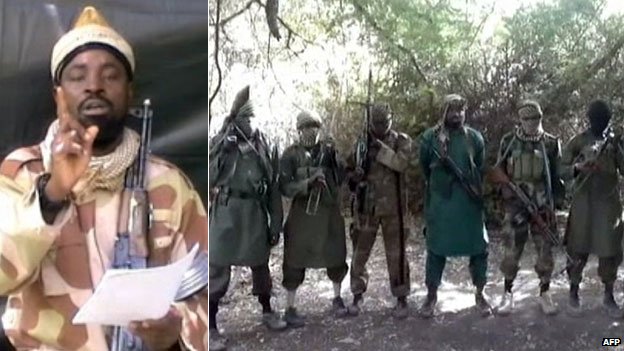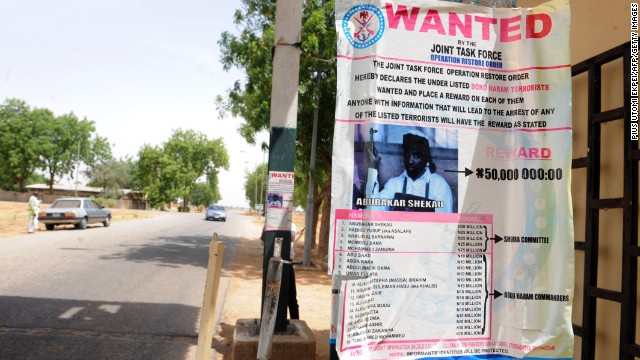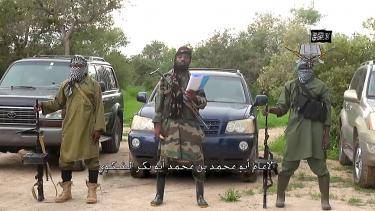Nigeria Islamist group Boko Haram blamed for escalating violence

Nigeria Islamist group Boko Haram blamed for escalating violence - CSMonitor.com

At least 25 Nigerians were killed Sunday night when motorcyclists threw bombs into outdoor beer gardens in the northeastern city of Maiduguri (see map). No group has claimed responsibility yet, but local police say the attack bore the hallmark of the Islamist group Boko Haram.
The attack underscores a deterioration of security in Nigeria's predominantly Muslim north particularly since President Goodluck Jonathan, who comes from the mainly Christian south, was inaugurated on May 29. Boko Haram is fighting for the implemention of sharia (Islamic law), including a ban on alcohol, and has demanded an Islamic state.
The Islamist group, which came to prominence in 2009 and is now considered the greatest threat to Nigeria's security, launched coordinated bombings in three towns after Mr. Jonathan's inauguration. It also claimed responsibility for a June 16 attack on federal police headquarters in Abuja, the capital, and has attacked clerics, politicians, and soldiers, Agence France-Presse (AFP) reports. According to Reuters, attacks now occur almost daily in Maiduguri, the capital of Borno State.
Borno State is already governed by sharia, as are 11 other northern states out of Nigeria's 36 total states. However, even in those mainly Muslim states, establishments like the beer gardens are thriving out of the public eye, the Associated Press reports.
President Jonathan's government has said it wants dialogue with Boko Haram, but the Islamist group has yet to put forward a leader to speak on its behalf. Its former leader, Muhammed Yusuf, was killed while in police custody in 2009.
Jonathan also endorsed a cease-fire effort led by Borno State Governor Kashim Shettima. He has offered amnesty to members of the group who opt to give up their arms, according to AFP. The group was set to begin talks with the government on a few conditions, including the continuation of sharia in the northern states, but it backed out after the national police chief said that the group's days were "numbered."
Sunday's attack coincided with the deployment of government troops in the city to address the daily violence. The special task forces resemble the ones deployed in the oil region of the Niger Delta and in Jos, a city prone to sectarian violence, Agence France-Presse reports.
Boko Haram whose name is variously translated as "Western education is sinful" or "Western culture is forbidden" used to exist at the margins of Nigerian Muslim society, but unemployment, poverty, and a lack of education have increased its influence in the north. They have a strict Islamic ideology and have claimed responsibility for the deaths of Muslim leaders who criticized their tactics, according to a Reuters background article on the group.
A Reuters report on the growing violence in the north says that the group now has thousands of supporters and that heightened security in Maiduguri has polarized the local population.
Nigeria Islamist group Boko Haram blamed for escalating violence - CSMonitor.com




